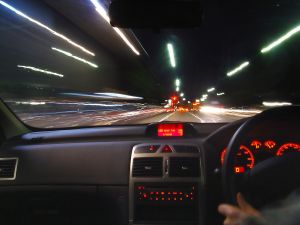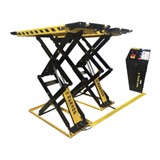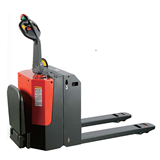Their ultimate aim is to revolutionise personal transport with millions of zero-emission vehicles powered by electricity from renewable sources at home, work or charging stations.
Project leader UWA Professor Thomas Bräunl said about 50-100 electric vehicles (EVs) — including about 30 owned privately — are thought to be currently operating in Perth.
The new EV recharge network has been installed between Midland and Fremantle — including a recharge outlet at East Perth Railway Station — and at Osborne Park. Most are dual outlets that can charge two vehicles at the same time.
The federal government-funded network uses new Level-2 stations that reduce the average time to fully recharge a medium-sized electric passenger car from about 10 hours to three.
Professor Bräunl said UWA road tests have shown a single recharge will enable a converted Ford Focus electric car to travel about 130km and a Mitsubishi Leaf about 110km.
A typical recharge uses about $2 worth of electricity but is currently available free with an electronic card reader issued by UWA. Parking at recharge stations is also free.
All outlets are connected to Western Power's electricity grid, although one outlet — at Energy Made Clean, in West Perth — also draws renewable energy from a solar photovoltaic (PV) system. A further six outlets are planned.
"All EV charging stations are networked and transmit their data to a server at UWA, where user data and load profiles are being analysed," Professor Bräunl said.
"This gives us a valuable insight into the requirements of EV charging infrastructure for the next two decades, when we expect millions of electric cars to have a significant impact on the electricity grid."
Professor Bräunl said the Level 2 recharge stations were built in the UK to comply with two competing world standards — IEC 62196 Type 1 ("J1772", US/Japan) and Type 2 ("Mennekes", Europe) and can charge any new electric vehicle.
The network is funded by an Australian Research Council linkage grant with partners UWA Engineering, UWA Business School, Murdoch University, the WA Department of Transport, CO2Smart and the Australian EV Association (AEVA); and external partners City of Fremantle, City of Swan, RAC, Main Roads WA, Water Corporation, West Australian Newspapers Ltd, Energy Made Clean, City of Mandurah, City of Perth, the WA Department of Environment and Conservation, LandCorp and Telstra and station sponsor Galaxy Resources.


-160x160-state_article-rel-cat.png)
-160x160-state_article-rel-cat.png)

-160x160-state_article-rel-cat.png)
-160x160-state_article-rel-cat.png)


-160x160-state_article-rel-cat.png)
-160x160-state_article-rel-cat.png)










